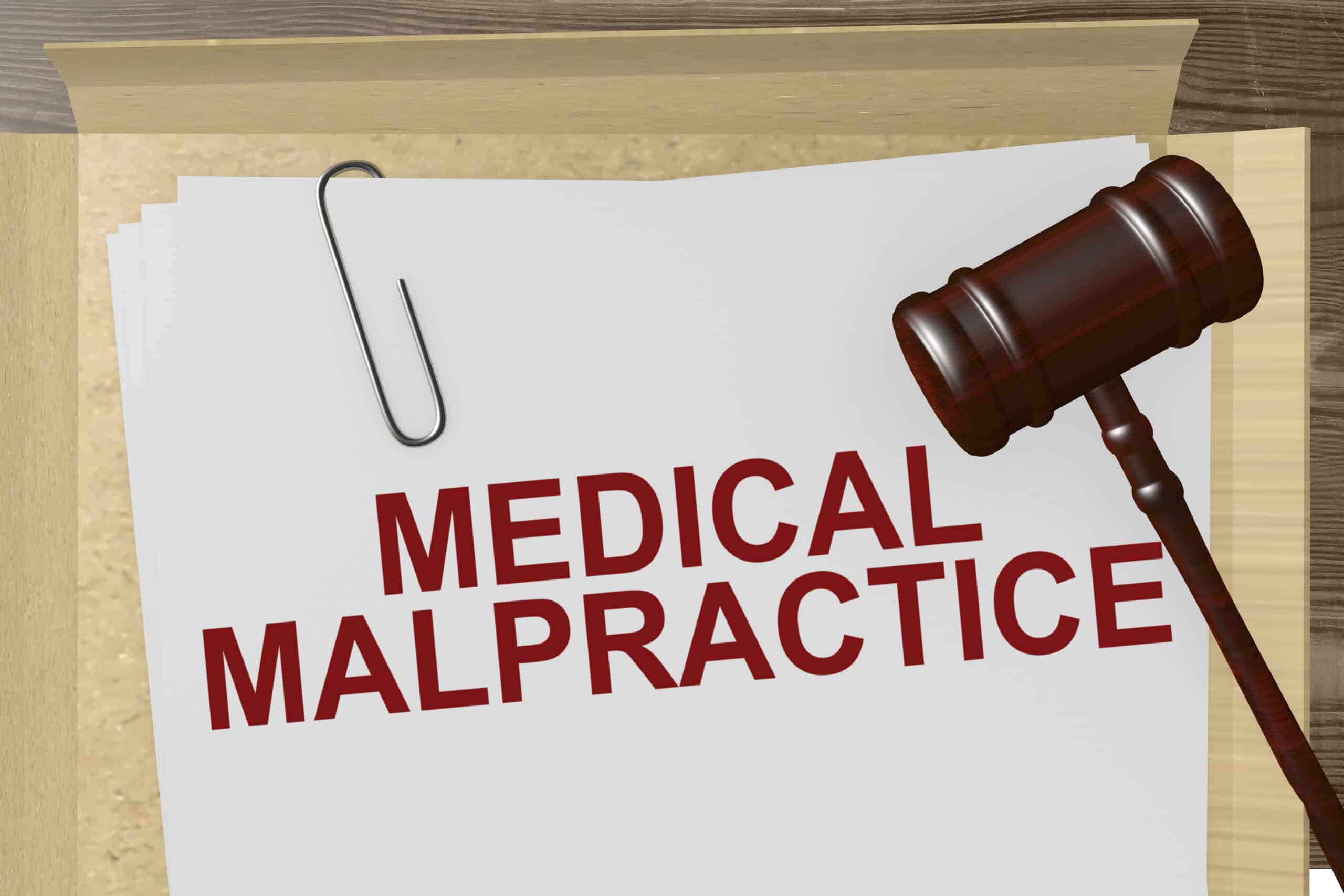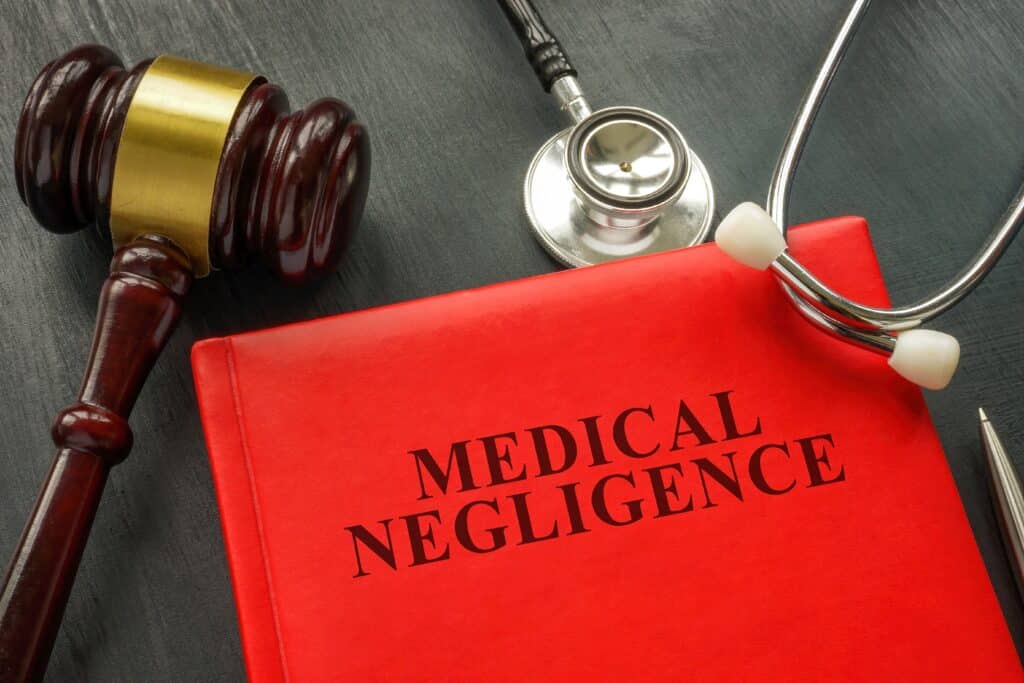What Is the Difference Between Medical Malpractice and Medical Negligence?
Gregg Hollander | May 27, 2024 | Medical Malpractice

Imagine the unthinkable: you or a loved one has suffered a severe injury or even lost their life due to a healthcare provider’s actions or inactions. The pain, confusion, and sense of betrayal you feel are unimaginable.
You trusted these medical professionals with your well-being, but now you’re left wondering what went wrong and how you’ll ever recover from this tragedy. Amid your grief and anger, you may ask yourself, “What is the difference between medical malpractice and medical negligence?“
You need a lawyer who understands these legal concepts to seek justice and compensation for the harm you’ve endured.
Although this article explores the differences between medical negligence and medical malpractice, a medical malpractice attorney can review your claim at no cost and determine whether you qualify to seek compensation.
Medical Negligence vs. Medical Malpractice
While the terms medical negligence and medical malpractice are often used interchangeably, there is a subtle distinction between the two.
Medical negligence refers to a healthcare provider’s failure to exercise the appropriate level of care, skill, or diligence that a reasonably competent professional would provide under similar circumstances. This can include errors in diagnosis, treatment, or aftercare that result in harm to the patient.
Medical malpractice, on the other hand, is a more specific legal term that describes a type of negligence in which a healthcare provider’s actions or omissions breach the accepted standard of care and directly cause injury or death to a patient.
In other words, all instances of medical malpractice involve negligence, but not all cases of medical negligence rise to the level of malpractice.
To qualify for medical malpractice, your case must contain four critical elements:
- Duty of care: The healthcare provider owed a duty to provide a certain standard of care to the patient.
- Breach of duty: The provider failed to meet this standard of care.
- Causation: The provider’s breach of duty directly caused the patient’s injury or death.
- Damages: The patient suffered actual harm, such as physical injury, emotional distress, or financial losses.
Deciding Whether You Have a Medical Malpractice Case
If you or a loved one is a victim of medical malpractice, act quickly and gather as much information as possible.

Some signs that you may have a valid claim include:
- Your condition worsened or you developed new symptoms after receiving medical treatment.
- Your healthcare provider failed to diagnose a serious condition or made an incorrect diagnosis.
- You underwent unnecessary or inappropriate treatments or the common causes of surgical errors.
- Your provider prescribed the wrong medication or dosage.
- Your provider failed to obtain your informed consent before a procedure or treatment.
- Your provider neglected to properly monitor your condition or follow up on test results.
If any of these situations sound familiar, speak with an experienced medical malpractice attorney who can evaluate your case and advise you on the best course of action.
Seeking Compensation for Medical Malpractice and Medical Negligence
When you’ve suffered harm from medical malpractice or negligence, you may seek compensation for your injuries and losses
This can include:
- Medical expenses, including past and future costs related to your injury
- Lost income and future earning capacity if your injury prevents you from working
- Pain and suffering
- Emotional distress
- Loss of enjoyment of life
- Disability or disfigurement
- Wrongful death damages if you lost a loved one due to medical malpractice
With the right legal support, you can hold negligent healthcare providers accountable and secure the necessary resources to move forward.
Why You Need an Attorney for Help

Medical malpractice cases are notoriously complex, and healthcare providers and their insurance companies vigorously defend claims. You need to have a skilled medical malpractice attorney on your side to level the playing field and protect your rights.
Your attorney can:
- Thoroughly investigate your case and gather evidence to support your claim
- Consult with medical experts to establish the standard of care and how your medical provider breached it
- Calculate the full extent of your damages and negotiate with insurance companies on your behalf
- Represent you in court if the at-fault party won’t negotiate a fair settlement
- Provide compassionate guidance and support throughout the legal process and give you some peace of mind that an experienced legal professional is looking out for you
At Hollander Law Firm Accident Injury Lawyers, our dedicated team has the knowledge, resources, and tenacity to handle even the most challenging medical malpractice cases. We’ll work tirelessly to ensure your voice is heard and you receive the maximum compensation for your injuries and losses.
What Kinds of Compensation Can You Receive?
In a successful medical malpractice claim, you may recover:
- Economic damages: These compensate you for the quantifiable financial losses you’ve incurred, such as medical bills, lost wages, and future care costs.
- Non-economic damages: These address the intangible losses you’ve suffered, like pain and suffering, emotional distress, and loss of enjoyment of life.
- Punitive damages: In rare cases involving particularly egregious or intentional misconduct, the court may award punitive damages to punish the healthcare provider and deter similar behavior.
Your attorney will work with you to assess the full impact of your injuries and build a strong case for the compensation you deserve.
How Long You Have to Pursue a Medical Malpractice Claim in Florida
In Florida, the statute of limitations for medical malpractice claims is generally two years from the date of the incident or from when the injury was discovered or should have been discovered. However, some exceptions and nuances apply to this rule.
Consult an attorney as soon as possible so they can file your claim within the appropriate time frame.
Frequently Asked Questions About Florida Medical Malpractice Claims
How do I know if I have a valid medical malpractice claim?
If you or a loved one has suffered harm due to a healthcare provider’s actions or inactions, speak with an experienced medical malpractice attorney. They can evaluate your case, explain your legal options, and guide you through the process of seeking compensation.
Can I sue for medical malpractice if I signed a consent form?
Signing a consent form does not necessarily waive your right to pursue a medical malpractice claim if a provider’s negligence harms you.
Informed consent requires that the provider fully explain the risks, benefits, and alternatives to a procedure or treatment. If they failed to do so or deviated from the accepted standard of care, you might still have a valid claim.
How can I determine if my doctor has had previous medical malpractice claims in Florida?
In Florida, you can search the Florida Department of Health’s online database for a healthcare provider’s disciplinary history and any medical malpractice claims.
However, the public record may not contain all claims or settlements. An attorney can investigate your provider’s background.
What if I can’t afford to hire a medical malpractice attorney?
At Hollander Law Firm Accident Injury Lawyers, we understand the financial strain that medical malpractice can place on victims and their families.
That’s why we offer free initial consultations and work on a contingency fee basis.
You won’t pay us anything upfront to handle your case, and you won’t owe us any attorney’s fees unless we successfully recover compensation on your behalf.
Discuss Your Case With an Experienced Florida Medical Malpractice Attorney at No Cost
Don’t suffer in silence after a negligent medical provider hurts you or a loved one in Florida. The compassionate and skilled attorneys at Hollander Law Firm Accident Injury Lawyers are here to listen to your story, answer your questions, and fight for the justice and compensation you deserve.
We understand the immense physical, emotional, and financial toll that medical errors can take, and we’re committed to being your unwavering advocate during every stage of the process.
Contact us today for your free, no-obligation consultation. Together, we can hold negligent healthcare providers accountable and work towards securing a brighter future for you and your family.
You’ve already endured so much. Let us handle the legal burdens while you focus on healing and moving forward.
